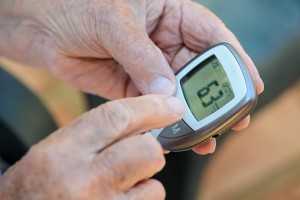Are You Buying African Hoodia
Many people have heard about African hoodia. News reporters have traveled to Africa to sample the plant. Pharmaceutical companies are currently working on a prescription medication which makes use of the South African hoodia gordonii plant. Many health supplement companies are marketing products which claim to contain African hoodia for use by dieters as natural appetite suppressants. While most of these companies are undoubtedly delivering reliable and high quality products, there have been reports which state that some of these products do not contain South African hoodia gordonii, at all. So, how can the consumer be sure that what he or she is buying is genuine?
Wild growth of South African hoodia gordonii is rare and protected from exportation by legislation. In order to legally export African hoodia gordonii, a manufacturer must have a CITES license. Legally exported African hoodia is grown on farms or plantations. A reputable supplement company should be willing to make their licenses available for inspection by consumers. In order to support claims that they are selling genuine South African hoodia gordonii, some companies display their CITES licenses and the chemical evaluations of their products. The wise consumer will read these reports carefully. Some companies appear to have documents that, upon close inspection, are questionable.
South African hoodia gordonii is a succulent that grows in clumps of upright stems. Some reporters have called it an ugly plant. Beauty is, however, in the eye of the beholder. After about five years the South African hoodia gordonii produces pale purple flowers. According to Phytopharm, a British pharmaceutical company holding the patent on the active molecule in African hoodia, it is around this same time that the plant reaches maturity and can be harvested. Phytopharm has invested millions of dollars researching the African hoodia plant's potential as an appetite suppressant. Some critics of the health supplement industry are concerned that the active molecule may not be present in large enough quantities to have an effect on a person's appetite. Supporters recount the South African hoodia plant's historical use by natives. They were not able to isolate an active molecule. They reportedly ate the stems of the African hoodia gordonii in its natural form.
Dieters who have tried the appetite suppressants currently on the market report mixed reviews; as with most health supplements, African hoodia works for some people and not for others. No one is claiming that healthy diet and a reasonable exercise program are not important for weight loss. While South African hoodia gordonii may help to curb a person's appetite, it will not magically melt the fat off of a person's body. Consumers interested in trying African hoodia should buy from a reputable company that sells other health supplements, displays a CITES certification and/or chemical analysis, and offers a reasonable money-back guarantee if the product fails to produced desired results. Two products which meet all of these criteria and have received positive reviews by dieters are Hoodia XR and Hoodia Gordonii Plus. Hoodia XR is a 1000mg time-released capsule which contains 100% pure South African hoodia gordonii. Hoodia Gordonii Plus contains a mixture of African hoodia and other natural appetite suppressants.
-
What Is A Weight Loss Vacation?
To make it simple � a weight loss vacation is when you go to a resort
-
How To Beat The Battle Against Fat.
Beating the battle of the bulge becomes more and more complicated a
-
Medication Shows Modest Benefit in Reducing Weight
Weight Loss Medication Use of the weight-loss medication rimonabant pr
-
How to Lose Belly Fat
Excess belly fat is a common problem for both men and women. Unfortuna
-
Simple Strategies That Will Get You To Lose Weight
When talking about losing weight, you hear a lot about things you can
-
Use of Diet Pills by Teenagers Increasing
A study looking into the eating habits of teenage girls suggests th
- DON'T MISS
- Weight Loss Systems Advice
- How to Choose a Diet Program
- Book Review: The Ultimate Calorie Counter
- Lose That Stubborn Belly Fat With These Excellent Fitness Tips
- The Importance Of Weight Loss Program
- The Healthiest Suggestions To Follow Concerning Weight Loss
- Detox Diet: the Key to a Healthy Lifestyle
- Transform90 Weight Loss Program: For Fast and Effective Weight Loss
- Secret To Dropping Pounds After Menopause
- Atkins Diet Plan Whats The Catch




